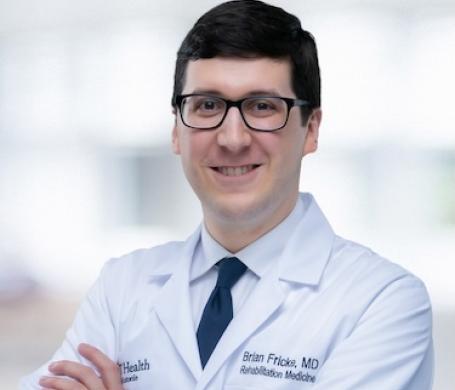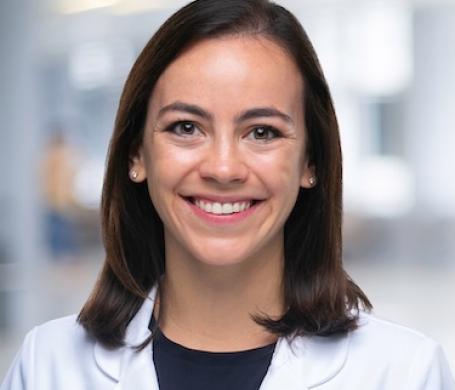
Oncology Rehabilitation
What is oncology rehabilitation?
Oncology rehabilitation specialists coordinate with therapists to improve well-being during and after cancer treatment.
Rehabilitation may be effective for people experiencing:
- Difficulty moving
- Neurological issues, like mental fog or balance issues
- Lymphedema
- Pain
- Tiring easily (fatigue)
- Weakness
At Mays Cancer Center, a physical medicine and rehabilitation doctor (physiatrist) who specializes in the diagnosis and treatment of issues affecting the bones, joints, muscles, nerves, brain, and spine coordinate these services and treatments.
Is oncology rehabilitation right for you? Take a quick health assessment to find out if you're a good candidate.
How to talk to your doctor about oncology rehabilitation
Oncology rehabilitation is a growing field, and you may learn about it the first time a member of our care team recommends it for you.
It’s important to know that:
- We guide you through evaluation and treatment decisions: Our physiatrist takes time to learn about your health history, cancer diagnosis and treatments. We then discuss your current and future therapy needs and together develop a treatment plan.
- Rehabilitation is tailored to your needs: No two people experience cancer treatment the same way. Your symptoms and side effects may be different from others. We ask you about your recovery goals so we can coordinate services that support them.
- Prehabilitation may be part of your care: Patients often meet with rehabilitation experts before starting treatment. Prehabilitation includes therapies to improve strength and endurance, which can help aid your recovery.
- Services are available before, during or after treatment: When you need therapies to prevent or treat complications, we are here for you. Mays Cancer Center specialists stay in regular communication, so you receive timely care even if your needs change.
A member of our team meets with you and explains how oncology rehabilitation fits into your overall care plan and what to expect with each therapy. We encourage you to ask questions and share your concerns, so we can address them.
You also have access to resources throughout cancer treatment that optimize your whole health, including your emotional well-being.
Learn more about:
Oncology rehabilitation: What to expect
Our physiatrist completed a fellowship in cancer rehabilitation, an additional level of training that helps more patients receive personalized care. Meeting the physiatrist early in your treatment makes it easier to anticipate your needs and coordinate services.
- For breast cancer patients with shoulder pain, we determine whether it’s due to treatment side effects, activity level changes or an injury.
- If you are having surgery for gastrointestinal cancer, we may recommend physical therapy before your procedure. Therapy can help strengthen your core, making it easier to get moving again after surgery.
Your rehabilitation plan may also include:
- Pain management, including steroids or Botox® injections
- Physical therapy
- Occupational therapy, which uses special techniques to help you complete daily tasks like getting dressed, going to the bathroom and bathing
- Family training so that your loved ones can safely assist you with self-care tasks
- Nutrition counseling to help you get more nutrients that promote healing
- Bladder or bowel therapy, which includes medications or other methods for eliminating urine or feces
- Speech therapy
- Lymphedema therapy
Why choose us for oncology rehabilitation?
Highlights of our program include:
- Commitment to excellence: We are the only National Cancer Institute (NCI)-designated cancer center in Central and South Texas. This designation illustrates our doctors’ expertise in researching and treating many cancer types. Find out more about NCI designation.
- Focus on quality of life: We deliver therapies that maximize independence and make it easier to spend time with loved ones. Rehabilitation may include physical therapy, which enables you to sit up for longer periods so you can socialize. We also provide helpful tips, such as ways for people with bladder and bowel issues to avoid accidents.
- Leading therapies: Oncology rehabilitation is one of many therapies you may receive. We offer leading cancer treatments, including sophisticated surgical procedures and targeted therapy drugs. Read more about cancer treatments.
- Coordinated care: If you travel great distances for care, we take extra steps to help you make the most of each visit. Doctors work together to deliver multiple services in one day. Some services like supportive care can be available on short notice.

 Close
Close



